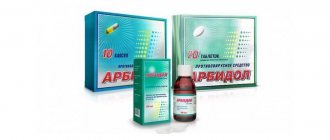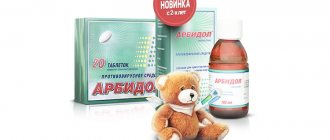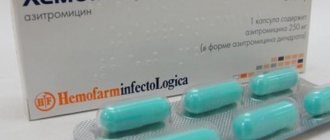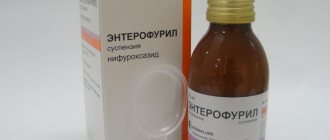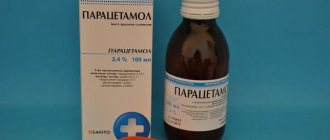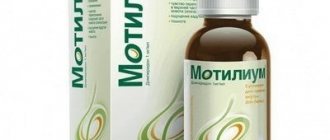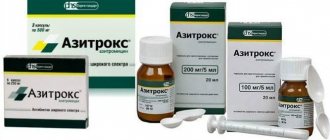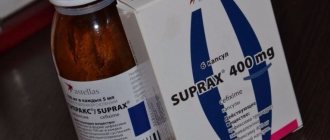- July 7, 2019
- Other drugs
- Lazko Natalia
Colds, fever, flu and acute respiratory viral infections are usually accompanied by unpleasant symptoms such as fever, runny nose, and headache. The drug "Maxicold" is able to relieve almost all of these negative manifestations. This modern medicine is also available in the form of syrup for children. “Maxicold”, the instructions for use of which will be discussed later in the article, among other things, has earned very good reviews from parents.
Composition of the drug
The main active ingredient of the Maxicold suspension is ibuprofen. This syrup is yellowish-gray in color and has a pleasant fruity smell. Maxicold also contains additional substances such as glycerol, polysorbate, citric acid and some others. Currently, two types of Maxicold syrup are supplied to pharmacies in Russia - orange and strawberry.
This medicine is packaged by pharmacological companies in dark glass bottles, the capacity of which can be 100, 150 or 200 g. A dosing syringe and a measuring spoon are packaged in a box with the drug. On the packaging of the medicine, among other things, there is a table of syrup dosages, depending on the age and weight of the patient. The bottles themselves with this drug are sealed with a cap of a special design with primary protection.
This drug was developed specifically for the treatment of children. It is not prescribed by doctors for adults. Among other things, this medicine is recommended for use by WHO and is included in the list of “Life-Saving Drugs” in the Russian Federation. This drug belongs to the group of NSAIDs - non-steroidal anti-inflammatory drugs.
Compound
Maxicold is a syrup for children containing only 1 active ingredient ibuprofen. It is this component that has an analgesic, anti-inflammatory and antipyretic effect, and helps prevent the progression of the pathological condition. Due to the presence of 100 mg of ibuprofen in every 5 ml of the product, a pronounced therapeutic effect is achieved.
In addition, the composition contains several additional ingredients:
- Sodium citrate.
- Maltitol liquid.
- Xanthan gum.
- Sodium chloride.
- Sodium saccharinate.
- Polysorbate.
- Glycerol.
- Purified water.
- Flavoring.
- Dye.
Auxiliary ingredients do not have therapeutic properties; they are necessary to maintain the consistency of the product and preserve the chemical composition.
The principle of action of the medicine
Maxicold syrup can have the following effects on a child’s body:
- antipyretic;
- pain reliever;
- anti-inflammatory.
Many parents are, of course, interested in how long it takes for Maxicold children’s syrup to work. A special feature of this drug, among other things, is its speed of absorption. The child’s fever goes away after about 15 minutes. after taking this medicine. In the future, the effect lasts for a long time. The break between taking Maxicold is usually at least 8 hours.
pharmachologic effect
Non-steroidal anti-inflammatory drug (NSAID).
The mechanism of action of ibuprofen, a derivative of propionic acid from the group of non-steroidal anti-inflammatory drugs (NSAIDs), is due to inhibition of the synthesis of prostaglandins - mediators of pain, inflammation and hyperthermic reaction. Indiscriminately blocks cyclooxygenase 1 (COX-1) and cyclooxygenase 2 (COX-2), as a result of which it inhibits the synthesis of prostaglandins. It has a rapid, targeted effect against pain (analgesic), antipyretic and anti-inflammatory effects. Ibuprofen reversibly inhibits platelet aggregation.
Indications
In addition to fever and inflammation, this drug helps with sneezing, headaches, toothaches, earaches, and sprains. It can be prescribed for colds, flu, acute respiratory infections, scarlet fever, etc. You can also take this medicine if you have a fever after vaccination. Also, according to the instructions for use, Maxicold syrup for children can be prescribed in the following cases:
- with tonsillitis;
- oral thrush;
- glossitis;
- pharyngitis;
- periodontal disease.
It is also believed that this medicine can eliminate bad breath. Indications for the use of Maxicold syrup for children, among other things, may include superficial ulcerations in the oral cavity. But in this case, as with mucosal thrush, it is better to use a spray of the same name. In this form, the medicine can be used for children aged 3 years and older.
What side effects can the drug have on the child’s body?
You should also consult with your doctor before giving this drug to your child because in some cases, after taking it, it can have a negative effect on the body. If you believe the instructions for use for Maxicold syrup, the most common side effects that this medicine gives are:
- nausea, vomiting;
- tachycardia;
- tinnitus;
- dyspnea.
Also, taking this drug in some cases can cause:
- visual impairment and hearing loss;
- aseptic meningitis;
- bronchospasms.
If you are allergic to any of the components, your child may experience itching and hives. Of course, in this case, taking the drug can lead to anaphylactic shock or the manifestation of Quincke's edema. Also, side effects of the active substance "Maxicold" include myocardial infarction and toxic necrolysis.
Of course, if any side effects occur, the child should stop giving the syrup. Also in this case, the small patient should definitely be shown to a doctor.
Side effect
When using the drug, the following side effects may occur:
From the gastrointestinal tract: nausea, vomiting, feeling of discomfort or pain in the epigastrium, diarrhea, flatulence, constipation, erosive and ulcerative lesions, bleeding, exacerbation of ulcerative colitis and Crohn's disease, ulcerative stomatitis, impaired liver function, hepatitis, increased activity " liver" transaminases. From the nervous system: headache, dizziness, psychomotor agitation, insomnia, depression, aseptic meningitis (in patients with autoimmune diseases).
From the cardiovascular system: tachycardia, increased blood pressure, heart failure, myocardial infarction, stroke.
From the hematopoietic organs: anemia, thrombocytopenia, agranulocytosis, leukopenia, pancytopenia.
From the urinary system: impaired renal function, cystitis, papillary necrosis, acute renal failure, interstitial nephritis, peripheral edema, increased concentration of urea in the blood plasma. Allergic reactions: skin rash, itching, urticaria, exacerbation of bronchial asthma, angioedema, anaphylactoid reactions, anaphylactic shock, bronchospasm, fever, erythema multiforme exudative (including Stevens-Johnson syndrome), toxic epidermal necrolysis (Lyell's syndrome).
From the senses: blurred vision, hearing loss, ringing in the ears.
From the respiratory system: shortness of breath.
If these or other side effects occur, you should stop using the drug and consult a doctor.
Negative effect on blood
In very rare cases, therapy using pediatric Maxicold can lead to bleeding problems. The first signs of such a problem are:
- fever;
- a sore throat;
- superficial ulcerations of the oral cavity;
- severe weakness;
- nose bleed;
- flu-like symptoms.
The child may also experience skin rashes. If a patient develops such symptoms, treatment with Maxicold should be stopped immediately, and then a doctor should be called to the home.
Use during pregnancy and lactation
In the first and second trimesters of pregnancy, Maxicold for children can be used if the expected benefits of therapy, in the opinion of the doctor, outweigh the potential risks. In the third trimester the drug is contraindicated.
Ibuprofen penetrates into mother's milk in small quantities, so a negative effect on the infant is unlikely. However, if it is necessary to take the drug in high doses and/or long-term therapy, it is recommended to interrupt breastfeeding during treatment.
What happens in case of an overdose
It is worth calling a doctor at home if for any reason a child receives too much Maxicold suspension for children. The main symptoms of an overdose of this medicine are:
- nausea, vomiting, abdominal pain;
- headache;
- noise in ears;
- acute renal failure;
- metabolic acidosis;
- tachycardia, bradycardia;
- decrease in blood pressure.
While waiting for the doctor to arrive, the injured child needs to rinse the stomach (the procedure can only be performed in the first hour after taking a large amount of the drug). Alkaline drinking and activated carbon will also be useful in this case. In case of an overdose of Maxicold, doctors usually prescribe symptomatic treatment for children.
Use during pregnancy and breastfeeding
The use of the drug is contraindicated in the third trimester of pregnancy. In the first and second trimesters of pregnancy, the use of the drug is possible only if the expected benefit to the mother outweighs the potential risk to the fetus. An assessment of the expected benefits and potential risks should be carried out by a doctor.
It has been found that ibuprofen is detected in breast milk in very low concentrations. The minimum detectable dose (0.0008% of the dose received) is unlikely to have an effect on the baby during breastfeeding. With long-term use of the drug or when using high doses, it may be advisable to temporarily stop breastfeeding. To decide whether it is necessary to stop breastfeeding while using the drug, you should consult a doctor.
Interaction with other drugs
For colds, flu, acute respiratory infections, etc., children are usually treated comprehensively. Therefore, parents certainly need to have an idea of exactly how Maxicold syrup can interact with other medications. It is believed, for example, that this drug should be taken with caution simultaneously with such drugs as:
- Acetylsalicylic acid and other NSAIDs.
- Antihypertensive drugs.
- Corticosteroids and selective inhibitors.
- "Methotrexate."
- Some antacids.
- "Cyclosporine" and gold preparations.
- "Mifepristone."
- "Tacrolimus."
- Quinolone antibiotics.
- "Zidovudine."
- "Cefamandol" and many others.
Parents should also keep in mind that caffeine can enhance the analgesic effect of Maxicold. In any case, complex treatment for the child, including the use of such syrup, should, of course, be prescribed by the attending physician.
Contraindications
- hypersensitivity to ibuprofen, acetylsalicylic acid or other NSAIDs, as well as to other components of the drug;
- complete or incomplete combination of bronchial asthma, recurrent polyposis of the nose and paranasal sinuses and intolerance to acetylsalicylic acid or other non-steroidal anti-inflammatory drugs (including a history);
- ulcerative lesions of the gastrointestinal tract in the acute phase;
- gastrointestinal bleeding;
- a history of bleeding or perforation of a gastrointestinal ulcer caused by the use of NSAIDs;
- inflammatory bowel diseases in the acute phase (Crohn's disease, ulcerative colitis);
- active liver disease;
- progressive kidney diseases;
- severe hepatic, renal (creatinine clearance (CC) less than 30 ml/min) failure;
- confirmed hyperkalemia;
- severe heart failure, condition after coronary artery bypass grafting;
- bleeding disorders (including hemophilia, prolongation of bleeding time, bleeding tendency, hemorrhagic diathesis);
- intracranial hemorrhage;
- children up to 3 months;
- pregnancy (III trimester);
- fructose intolerance (as it contains maltitol).
special instructions
Maxicold syrup differs from temperature for children, among other things, in that it does not contain sugar. Therefore, it can be given to children with diabetes. Before using this drug, you should definitely consult a doctor if your child is diagnosed with:
- bronchial asthma;
- systemic lupus erythematosus;
- heart failure.
Also, long-term therapy using this medicine should be carried out exclusively under the supervision of a doctor. In this case, the specialist will monitor the functional state of the child’s blood, liver and kidneys. This will avoid the development of any side complications.
Carefully
You should consult your doctor before using MAXICOLD® for CHILDREN in the following situations:
- simultaneous use of other NSAIDs;
- diseases of the gastrointestinal tract (peptic ulcer of the stomach or duodenum, ulcerative colitis, Crohn's disease, history of bleeding), liver, renal failure (creatinine clearance - 30–60 ml/min);
- presence of Helicobacter pylori infection;
- simultaneous use of oral glucocorticosteroids (including prednisolone), anticoagulants (including warfarin), antiplatelet agents (including clopidogrel), selective serotonin reuptake inhibitors (including citalopram, fluoxetine, paroxetine , sertraline), antihypertensive drugs, diuretics, lithium drugs, methotrexate;
- bronchial asthma, urticaria;
- heart failure, hypertension, cerebrovascular disease, dyslipidemia/hyperlipidemia, diabetes mellitus, peripheral arterial disease, fluid retention and edema;
- severe somatic diseases;
- systemic lupus erythematosus or other autoimmune connective tissue diseases (increased risk of developing aseptic meningitis);
- blood diseases of unknown etiology (leukopenia and anemia);
- pregnancy (I–II trimester);
- lactation period.
Dosages of Maxicold syrup
Of course, it would be better if the attending physician develops a treatment regimen for the child using this drug. The dosage is indicated in the instructions for this medicine by the manufacturer. However, the pediatrician can make changes to such recommendations in accordance with the child’s condition and the characteristics of his body.
Usually children are given Maxicold:
- at the age of 3 to 6 months - 2.5 ml three times a day;
- 6-12 months - 2.5 ml 3-4 times a day;
- 1-3 years - 5 ml 3 times a day;
- 4-6 years - 7.5 ml 3 times a day;
- 7-9 years - 10 ml 3 times a day;
- 10-12 years - 15 ml 3 times a day.
The maximum daily dose is:
- for children aged 3-6 months. - 150 mg;
- 6-12 months - 200 mg;
- 1-3 years - 300 mg;
- 4-6 years - 450 mg;
- 7-9 years - 600 mg;
- 10-12 years - 900 mg.
For children in syrup form, the composition of Maxicold is relatively safe. But still, the instructions for its use should be followed exactly.
In any case, taking this drug more often than once every 6 hours is not allowed. In this case, the drug can be used as an antipyretic for no more than 3 days in a row. When used as a pain reliever, this period can be extended to 5 days. If treatment using Maxicold needs to be continued, you should first consult with your doctor.
Indications for use
MAXICOLD® for CHILDREN is used from 3 months of life to 12 years as:
- antipyretic for acute respiratory diseases, influenza, childhood infections, post-vaccination reactions and other infectious and inflammatory diseases accompanied by an increase in body temperature.
- analgesic for pain of mild or moderate intensity, including: headaches and toothaches, migraines, neuralgia, pain in the ears and throat, pain with sprains and other types of pain.
The drug is intended for symptomatic therapy, reducing pain and inflammation at the time of use, and does not affect the progression of the disease.
How to take medicine correctly
As stated in the instructions for use of Maxicold syrup for children, it is recommended to shake the bottle thoroughly before use. 5 ml of this medicine (one spoon) contains 100 mg of active substance. For small children, it is best, of course, to measure the syrup with a syringe. In this case, the procedure should be as follows:
- the syringe is tightly inserted into the neck of the bottle;
- shake the suspension well;
- turn the bottle upside down;
- gently pull the piston down, collecting the required amount of suspension;
- return the bottle to its original position;
- remove the dosing syringe and carefully turn it over.
Next, the syringe is placed in the child’s mouth and, slowly pressing the plunger, the medicine is squeezed out. Of course, after use, the syringe should be thoroughly rinsed in water. Then the instrument must be thoroughly dried out of the reach of the child.
Before using the syrup from a syringe, the child must be seated on the bed. At night, some parents tend to ignore this recommendation. Perhaps this medicine will not cause any harm to a lying child. But out of caution, the baby should still be placed in a vertical position.
Instructions for use
The bottle is equipped with a removable nozzle with an extended spray nozzle. In accordance with the recommendations set out in the instructions for use of Maxicold Lor, you should not leave the nozzle on the bottle between doses of the medicine. The glycerol contained in the product has a viscous consistency: the substance remaining in the tube after use tends to thicken, preventing further use of the spray.
Maxicold Lor aerosol should be used according to the instructions:
- Remove the cap from the bottle and place the removable nozzle on it.
- If you are using the product for the first time or after a long break, press the nozzle several times until the liquid begins to spray.
- Hold the bottle upright. Place your index finger or thumb on the spray nozzle to apply pressure.
- Insert the nozzle tube shallowly into the mouth.
- Hold your breath.
- Press the nozzle 3 times, ensuring that the spray occurs evenly (for example, for pharyngitis), or by pointing the tube at the area that needs to be treated (for example, tonsils, affected areas of the oral mucosa).
- After use, remove the attachment, rinse it in warm water and dry naturally.
- Be sure to cap the bottle.
The drug “sticks” well to the mucous membrane and remains on it for 12 hours (in residual quantities - up to 3 days). This makes it possible and sufficient to use Maxicold Lor twice a day.
Analogues of the drug
This medicine is relatively inexpensive. The price for children's "Maxicold" in syrup is, depending on the region, in Russia 100-120 rubles per 200 ml bottle. But of course, this drug also has even cheaper substitutes. A generic version of this drug is, for example, Ibuprofen. The cost of 200 ml of this medicine is 80-90 rubles.
Some analogues of this drug cost a little more than it. These include, for example, “Nurofen” for children in syrup. This drug costs about 200 rubles. for 150 ml.
As an antipyretic for children, instead of Maxicold, analogues such as, for example, are sometimes used:
- suspension "Panadol" (active ingredient - paracetamol);
- Paracetamol syrup.
An anti-inflammatory substitute for Maxicold is, for example, the Bromhexine suspension (the active ingredient is bromhexine). This medicine is primarily good for coughs in children and is often used as an expectorant. Bromhexine can be given to patients over 2 years of age.
Antipyretic suspension for children "Panadol" is intended for the treatment of patients from 3 months of age. Using it, you can quickly bring down a child’s temperature. This remedy also has a pronounced analgesic effect. The instructions for using Paracetamol in syrup are approximately the same as for Panadol.
Pharmacodynamics
Maxicold is a syrup for children that helps eliminate not only severe pain, but also alleviates the condition of fever of various origins. The active ingredient of the drug is quite well absorbed in the digestive tract and distributes through the systemic circulation.
Ibuprofen acts on the components that provoke the inflammatory process, which leads to stopping its progression. As a result, tissue swelling is eliminated and pain in the affected area is relieved. Which significantly improves the patient's condition.
The active substance effectively reduces not only the overall body temperature, but also in the affected area. If the medicine is used to eliminate discomfort in the muscles, joints and affected soft tissues, then not only the pain disappears, but the temperature also decreases, which alleviates the patient’s condition.
In addition, the active substance affects the process of platelet adhesion, which leads to a slight thinning of the blood.
Additionally, ibuprofen has a mild sedative effect and improves the patient's sleep. In various diseases of inflammatory origin, sleep disturbance is observed as a result of severe pain and other factors. The use of syrup allows you to normalize sleep, which also contributes to a speedy recovery.
It is worth noting that the complex effect of the drug allows it to be used not only as part of a complex treatment, but also as an independent method of eliminating symptoms.
How to properly store the drug
This product is sold in pharmacies without a doctor's prescription. Of course, Maxicold syrup for children can be used according to the instructions for use only if it has not expired. The shelf life of this medicine is 2 years from the date of release. After this time, the bottle with the suspension should be thrown away.
This medicine should be stored at home at a temperature not exceeding 25 °C. Therefore, in the summer, the syrup may have to be placed on the bottom shelf in the refrigerator. Of course, it is better to store this product in a dark place so that children cannot reach it.
Reviews about the drug are positive
Consumers have a very good opinion about this medicine. Many parents advise that you must have “Maxicold” in syrup for children in your home medicine cabinet. Judging by the reviews available on the Internet, this medicine usually helps children no worse than the imported and more expensive Nurofen. In addition to its effectiveness and speed of action, many parents also cite its accessibility as an advantage of this syrup. Today you can buy Maxicold in almost any pharmacy in any city.
Of course, its pleasant taste can also be considered a huge advantage of this medicine. Many adults find it too sweet. However, according to parents, children drink this suspension quite willingly. Judging by the reviews, young patients usually don’t even wince when taking this medicine. This applies to both the orange and strawberry flavored drug.
Judging by the available reviews, “Maxicold” is very similar to “Nurofen” in taste and even color. According to some parents, despite the fact that this syrup is very inexpensive, it often helps the child even if Nurofen was powerless. Of course, consumers also praise this medicine for the duration of its effect.
This drug is very effective not only in reducing fever, but also in relieving pain. Many parents give this medicine to their children, for example, when they are teething. Judging by the reviews, it helps in this case, very well. Also, some Internet users report on specialized forums that they drink this medicine during lactation. In this case, the drug can really help the mother. But still, before using it during lactation, you should consult your doctor.
Among the advantages of this drug, parents, among other things, include the bright, pleasant packaging design. Judging by the reviews, children really like this syrup.
Overdose
Cases of overdose of the drug have been recorded, and with the development of this condition, the functioning of internal organs and systems deteriorates. Patients report strong noise and ringing in the head, ears, and blurred vision. Somewhat later, other manifestations appear in the form of flies and blurred vision, nausea and a sharp decrease in blood pressure.
When examining the patient and counting the pulse, tachycardia and arrhythmia are noted. The skin becomes pale, moist and cold to the touch. Weakness, fatigue and depression are observed. In many children, nausea provokes repeated vomiting and deterioration of the general condition as a result of dehydration.
An overdose may be accompanied by stool disorder, manifested in the form of diarrhea or persistent constipation. If signs of overdose appear, it is important to stop using the medication. If symptoms do not go away, you should visit a doctor. In a hospital setting, a specialist will perform a gastric lavage procedure and prescribe symptomatic treatment, since the drug does not have a specific antidote.
It is important to take plenty of fluids when treating an overdose. The doctor also monitors daily diuresis, which allows you to evaluate kidney function.
Negative reviews
Regarding the effectiveness of the action, there are practically no negative comments about the drug "Maxicold". The main disadvantage of this medicine is that it is not very convenient to use. Maxicold loses to Nurofen in this regard.
For example, many parents would advise the manufacturer to put dosage instructions not on the box of Maxicold baby syrup, but directly on the bottle. The packaging of the drug, unfortunately, can quickly get lost, just like the instructions included inside.
Also, a rather serious disadvantage of this medicine is the lack of protection from children. A child can easily unscrew the lid if desired. The taste of the syrup, as already mentioned, is very pleasant. And therefore he can easily attract a child. To avoid misfortune, many parents on the Internet advise hiding such a bottle as far as possible.
In addition, judging by the reviews of Maxicold, Internet users consider that a small drawback of this syrup is that the measuring spoon included with it is too small. For older children, medicine often has to be given in parts. At the same time, a measuring syringe in the package with Maxicold, unfortunately, is not provided in all cases. Parents sometimes have to give this syrup to very young children, usually using a syringe or leftover, for example, from Nurofen.
This syrup itself, according to some parents, is too runny. In addition, it has a sticky consistency. It often happens that when taking medicine, some of it is spilled. In this case, it takes a long time to wash it.
This medicine usually does not cause side effects. But sometimes, judging by the reviews available on the Internet, it can still have a negative effect on the child’s body. Most often, as parents note on specialized forums, this drug causes an allergic reaction. The most common symptom of Maxicold is urticaria.
Drug interactions
Particular care must be taken if it is necessary to simultaneously use Maxicold for children in combination with the following drugs:
- acetylsalicylic acid (ASA) and other NSAIDs: the risk of side effects increases. When prescribing ASA to patients with coronary heart disease or cerebrovascular accidents, its effectiveness may be reduced;
- antihypertensive drugs, including angiotensin-converting enzyme (ACE) inhibitors and slow calcium channel blockers: their effect is reduced;
- corticosteroids, selective serotonin reuptake inhibitors (including fluoxetine, sertraline, paroxetine, citalopram): the risk of gastrointestinal bleeding increases;
- some antacids: absorption of ibuprofen is reduced;
- cardiac glycosides: their level in the blood plasma may increase, possibly increasing heart failure, reducing the glomerular filtration rate;
- drugs that block tubular secretion: the excretion of ibuprofen decreases and its plasma concentration increases;
- myelotoxic drugs: manifestations of hematotoxicity of ibuprofen increase;
- uricosuric agents, thiazide diuretics: their effectiveness decreases;
- thrombolytic drugs, fibrinolytics, antiplatelet agents: their effect is enhanced;
- inducers of microsomal oxidation (including phenylbutazone, barbiturates, rifampicin, tricyclic antidepressants, phenytoin, ethanol): the production of hydroxylated active metabolites increases, which increases the risk of developing severe hepatotoxic reactions;
- microsomal oxidation inhibitors: the risk of developing ibuprofen hepatotoxicity is reduced;
- quinolone antibiotics: increases the risk of seizures;
- tacrolimus: increased risk of nephrotoxicity;
- cefamandole, cefotetan, cefoperazone, plicamycin, valproic acid: the incidence of hypoprothrombinemia increases;
- lithium: its elimination slows down;
- cholestyramine: absorption of ibuprofen decreases;
- mifepristone: its effectiveness decreases (if necessary, ibuprofen can be taken no earlier than 8–12 days after stopping mifepristone);
- caffeine: the analgesic effect of ibuprofen increases;
- cyclosporine and gold preparations: the effect of ibuprofen on the synthesis of prostaglandins in the kidneys increases, which increases the risk of nephrotoxicity;
- mineralocorticosteroids, glucocorticosteroids: their side effects increase;
- zidovudine: possible increase in hematotoxicity; there is evidence of an increased risk of developing hematomas and hemarthrosis in HIV-positive patients with hemophilia;
- methotrexate: its elimination slows down; with impaired renal function, the risk of developing hepatotoxic reactions significantly increases, even when using methotrexate in low doses (less than 20 mg per week).
Does it help in all cases?
Most often, Maxicold syrup brings down a child’s temperature and relieves headaches within 20-30 minutes. Sometimes, before the drug takes effect, you have to wait a little longer - up to 2 hours. This remedy almost always helps. However, like any other medicine, Maxicold, of course, is not suitable for all children. Sometimes it happens that it does not lower the temperature at all.
In this case, parents, of course, should purchase another medicine for the child. In this case, perhaps the doctor will recommend to his little patient some remedy that is not based on ibuprofen.
Side effects
Maxicold is a syrup for children, which often provokes adverse reactions if the instructions included with each bottle are not followed. Complications may arise if all rules are followed.
The most common manifestations:
- Headache and dizziness as a result of changes in blood pressure.
- Nausea and pain in the stomach area.
- Intestinal colic, bloating.
- Stool disorder.
- Decreased appetite, severe thirst and dry mucous membranes of the mouth.
- Deterioration of vision and hearing. The symptom usually appears over a short period of time and disappears after stopping the syrup.
- Shortness of breath, manifested at rest or with slight exertion.
- Nephritis, urination disorders and the appearance of foreign impurities in urine. From the urinary organs, acute renal failure and cystitis may develop.
- During treatment, the hematopoietic system often suffers; disorders manifest themselves in the form of a decrease in the number of platelets and clotting factors, which can lead to bleeding, even with minor damage to soft tissues.
- Increased blood pressure is observed in some patients. Typically, such complications arise when there is a history of vascular pathologies.
- Insomnia and emotional agitation are considered the most common complication of the central nervous system. However, in adults such disorders occur much less frequently.
The most pronounced complications develop from the digestive tract. They manifest themselves in the form of stomach pain, indigestion and bloating. In addition, the risk of internal bleeding increases as a result of damage to the vessels of the mucous membrane of the digestive tract.
Any negative reactions are considered a reason to discontinue the drug and contact a specialist. You may not need special treatment, but it is strongly recommended not to ignore the symptoms.
In what other forms can it be produced?
In addition to the suspension, this medicine can also be supplied to the market in the form of tablets, powder or spray. Maxicold tablets have an oblong shape and are supplemented with a score. Doctors recommend taking this medicine 1-2 hours before or after meals. Medicine in this form can be offered to children from the age of 9 years. Adults and adolescents over 12 years old are given 1-2 tablets of Maxidol tablets. at intervals of 6 hours. The dosage for children from 9 to 12 years is 1 pc. at the same interval.
Maxicold powder is used to prepare a medicinal drink. In this case, the contents of the bag are poured into a glass of hot water. Adults should be given this medicine 1 packet every 4 hours at a time. The dosage for children over 12 years of age is also 1 sachet. But in this case, it is recommended to take the medicine at intervals of 6 hours.
As in syrup, Maxicold in spray, tablets and powder has also earned good reviews from consumers. Despite the fact that this medicine is very inexpensive in all forms of release, it helps with influenza, colds and acute respiratory infections very well.
Pharmacokinetics
After taking the suspension orally, the active ingredients are absorbed into the blood through the walls of the small intestine. Ibuprofen spreads through the systemic circulation and concentrates in the affected area.
The ingredient binds well to blood proteins, and its bioavailability reaches 90%. Thanks to such a high rate, a pronounced therapeutic effect on the patient’s body is achieved.
The maximum concentration of the substance in the blood is reached 45 minutes after administration. If the patient used the product after meals, this period increases by 2 times.
The ingredient does not accumulate in the blood; minor accumulation is possible in tissues, for example, cartilage and connective tissue of articular joints. In addition, a fairly large amount of the drug is found in the synovial fluid.
The substance is processed in the patient's liver, where it breaks down into active and inactive metabolites. The main amount is excreted from the body through the kidneys after 3-8 hours. Only a small part of the processed components is evacuated with bile. Experts have determined that about 1% of ibuprofen is excreted unchanged from the body.
In patients with pathologies of the liver, kidneys and digestive tract, the period of absorption and excretion is prolonged, which does not affect the effectiveness of the drug.
